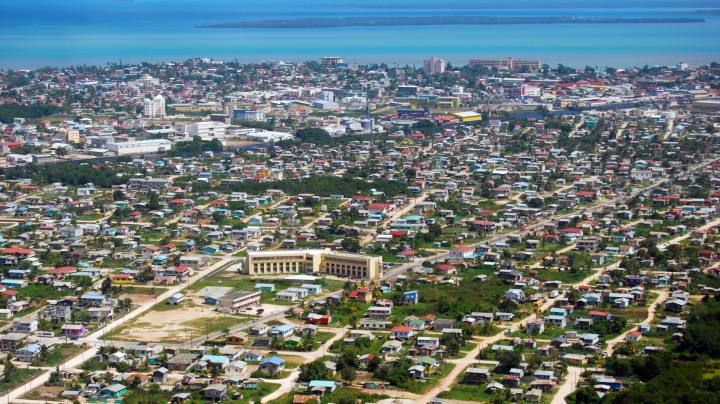Belize’s Prime Minister Celebrates 31 Days With No New Cases of Coronavirus in the Country

Flying into Belize City, Belize with Caribbean view in the background. Getty Images
Belize’s coronavirus numbers have reportedly held steady for 31 days, making the country one of 12 regions in the world that say they are currently free of COVID-19. 18 people were confirmed to have the virus in March, and no new cases have appeared on record since. Two people in the Central American country passed away from it. No new infections have surfaced since then, although it’s unclear how often people are being tested.
Still, Belize Prime Minister Rt. Hon Dean Barrow credited Belize’s medical and scientific community for their efforts amid the pandemic.
“Belize is now one of only 12 countries and territories in the entire world to be currently COVID-19 free,” he said in a recent speech, per eTurboNews. “That is quite an achievement, and I want immediately to congratulate all Belizeans, but in particular, to single out the essential service workers, all essential workers and in particular, of course, the frontline workers—doctors, the nurses, all the medical personnel.”
Belize has been looking at ways to reopen slowly. Barrow announced easing restrictions for local and international travel and has tentatively scheduled Philip Goldson International Airport to open on July 1. But this presents a risk: Latin America has been particularly vulnerable to the spread of the virus and nearby countries, such as Nicaragua, haven’t taken safety or lockdown measures to contain infections. Additionally, because Belize’s economy depends so heavily on tourism, the summer season could mean people flying in from different parts of the world and ramping up virus numbers in the country.

During his speech, Barrow was careful to say that he doesn’t think Belize has defeated the virus completely. He indicated that the country will continue to monitor numbers and take precautions in case there’s another spike or second wave.
“While this is quite an achievement, it is not cause to declare victory,” he said. “The science and the experts, including our own Dr. Manzanero, warn us of the folly, indeed the danger, of any such rashness. And the experience of other countries provides clear examples of how easily things can change; the possibility of regression; the rapidity with which a second wave could overtake us.”